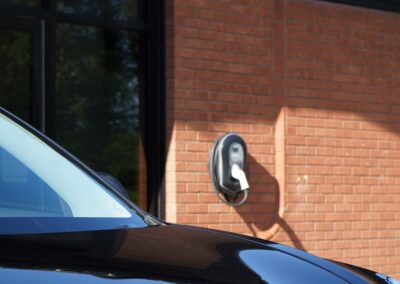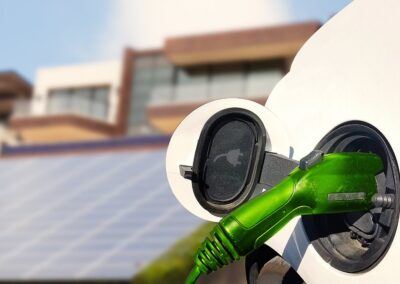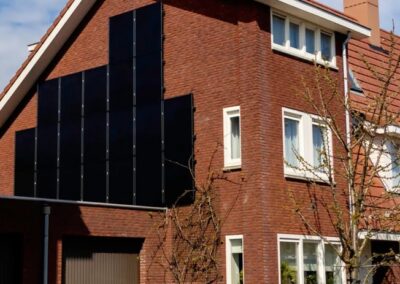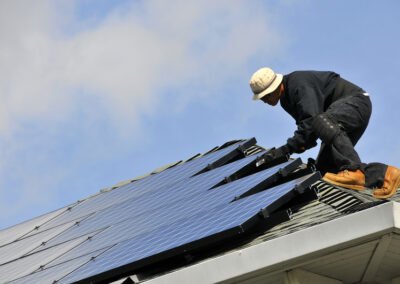Solar Vehicle Charger, Etobicoke
For homeowners looking for sustainable ways to fuel their vehicles and reduce their overall carbon footprint, having a solar vehicle charger installed not only reduces your environmental impact, but makes economic sense.
Request InformationSchedule Service
Solar Vehicle Charger, Etobicoke
Owning an electric vehicle significantly reduces the cost of transportation as it allows you to fuel your car at home. This is especially beneficial with the rising cost of gasoline these days. However, a trade-off is that you’ll likely see an increase in your household electric bill with everyday use. Many homeowners offset these costs with a solar vehicle charger.
The increase in governments phasing out gasoline vehicles means that a large percentage of vehicles in the next 10 years will be electric. As manufacturers respond to this demand by increasing electric vehicle offers, a more innovative and sustainable energy source will be needed to power all of these vehicles. This is where powering your vehicle with solar panels comes in. With a solar vehicle charger and a solar energy system, you will be able to power both your home and your electric vehicle.
In some cases, a small solar panel array with as few as 10 solar panels can generate enough power to fully charge a vehicle’s battery overnight, but this can largely depend on factors such as your vehicle model and the frequency of use. Regardless, the cost of solar is dropping rapidly across the country and world, so it has never been a better time to consider switching to solar.
Compared to gas-powered vehicles, the potential long-term savings of charging an electric vehicle with solar power is significant. An installed photovoltaic (PV) system has the ability to charge an electric vehicle for up to 25-30 years. At $3 per watt, or $3,000 for a 1 kW system that you can re-use year after year, this beats the average annual cost of gasoline for the average homeowner. If you have an already-existing solar array, the price is even lower as it can be as simple as linking up the two.
Contact MADE ELECTRIC for more information on solar vehicle chargers! We operate within the GTA and Etobicoke, and would be happy to help you through the process of transitioning to solar power. Whether you’re looking to have solar panels installed for your home, need help in picking out the perfect solar vehicle charger, or have questions about connecting your solar panels to your current charging station, we are here to answer your call.
Frequently Asked Questions (FAQs)
What are the power requirements needed for a solar vehicle charger?
This largely depends on factors such as how much you drive, what kind of electric vehicle you own, and the battery system within your solar panel system. For example, the longer your daily commute is to somewhere like work, the larger your solar panel will end up being. People living in denser urban areas will typically have shorter commutes, reducing the amount of power needed. A licensed electrician will be able to do an accurate calculation of the number of solar panels that will be needed based on your daily mileage and other factors.
Will my solar vehicle charger work on cloudy days?
Solar panels typically produce around 25-45% of its usual energy on cloudy days; however, the battery system within the solar panels allows energy obtained from the sun to be stored for later use. This allows solar panels to efficiently provide power no matter the weather, as well as during the night, which is when people typically leave their cars charging. It’s therefore important within a solar vehicle charging system to have a good battery.
What is an inverter and how would it be important to my solar energy system?
Inverters are one of the most important pieces of equipment within solar energy systems. These devices are what allow direct current (DC) electricity generated by the solar panel to be converted to alternating current (AC) electricity, which is what the electrical grid uses. The two types of inverters are string inverters and microinverters. A string inverter system is when multiple solar panels are arranged into rows, transferring the power produced into a single inverter. Meanwhile, a microinverter system is when each solar panel has its own inverter. This makes it easier to install additional panels if needed, but can be more costly up front. To figure out which system is best for you, contact MADE ELECTRIC today!




